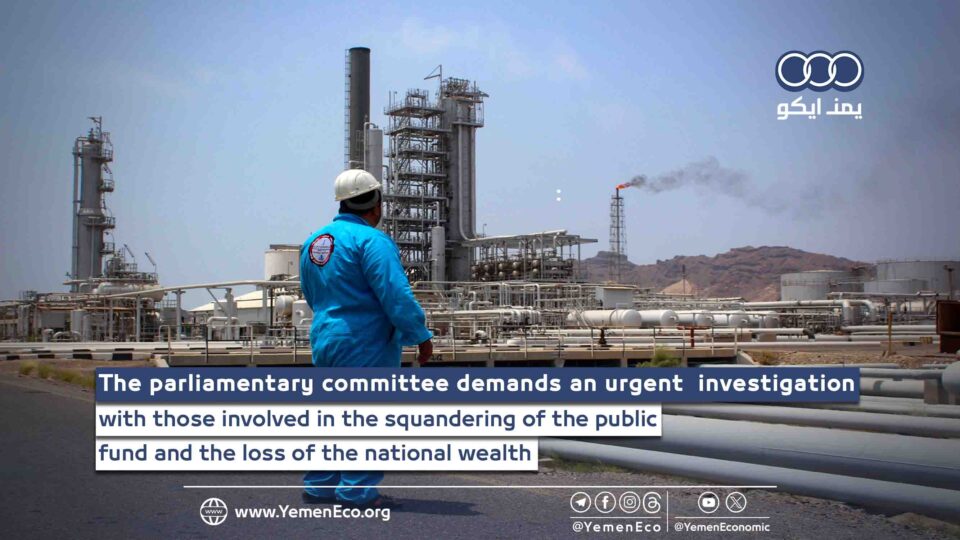YemenEco | News
The parliamentary committee’s report assigned by the parliament in Aden for fact finding regarding (electricity-oil-telecommunication-finance) revealed the magnitude of discrepancies, breaches and faltering which characterized in the performance of the concerned agencies in various sectors, what also it caused of dangerous impacts on the financial position of the government, the various activities and the pertaining public services, clarifying that the size of corruption, faltering and the waste of the public fund in the four sectors exceeds 2.8 trillion rail
In the financial sector, the assigned parliamentary committee by the parliament in Aden confirmed that the dangerous economic, financial and monetary situation to the government, within the stop of the oil exports, and the transformation of export movement towards Hodeida port, considering the steps that have been taken by the government like discount under tax and customs accounts assigned to (1-3%) in seaports and (3-5%) in the land ports, as well as raising the price of the customs dollars to phases from 250 dollars to 500 dollars later to 750 dollars and also updating the customs goods and other measures, it is not sufficient to overcome the risk that the government in general is not exempted from taking other measures to control and develop state public resources, in accordance with the legislation in force, fighting corruption, and reducing unnecessary expenditures.
The report of the parliamentary committee that the central bank in Aden faces difficulty in supervising the exchange companies and shops and taking the necessary legal producers in bidding with national currency, pointing out that the bank does not take any measures to prevent the opening of accounts for the government agencies at the exchange companies and sops in what it allows the bidding in the currency, clarifying that the government agencies open accounts outside the central bank violates the law and avails opportunity to bidding in the currency and damaging its value against the foreign currencies and breaching the financial law.
The report mentioned that the ministry of finance deliberately did not announce the contribution of the national oil companies “Safer- PetroMasylah- and the Yemeni company for investment)” from the total actual revenues, and hides the data from of the committee, indicating to the insignificant of the nonoil resources comparing the exported oil resources, and this what it indicates to the none control of the collection of the nonoil resources from its various resources in accordance with law.
In accordance with government data, which parliamentary committee report included the total revenue of oil and non-oil has reached for the year 2022, 2.8 trillion rail, while the oil revenues reached 1.5 trillion rail, and the total oil and non -oil revenues reached 1.3 trillion rail.
The report pointed out that although the tax collection is still weak but through the presented data from government on the tax revenues, it was disclosed that the period (2020-2022) witnessed accomplishment of the highest growth rate, while the growth accomplished in the costumes fees have collected through the recent three years, resulted of the increase in the custom dollar rates in the first stage of 250 to 500 rail.
The report indicated to the discrepancies and not collecting the financial revenues for the state and acting in some of it in faltering way, spending of the revenues directly, non-application of financial law led to the decline of the revenues and continuing increase in expenditures, inability of the ministry of finance to pay the imposed and necessary obligations, indicating that enormous amounts were not obtained from a number of energy companies purchased on credits basis amidst throwing the responsibility between the ministry of electricity and the ministry of finance.
The report emphasized that the government should oblige the local authority leaderships in the governorates with applicable financial legislations and no deductions of the central revenues, in accordance with financial law and the local authority law in this regrade, and also obligating the local authority in the provinces not interfere in the businesses of the agencies and the revenue facilities with violation of laws and authorities given to them.


